Past Tenses Worksheets
These past tenses
worksheets are a great place to get some review and practice with the
very important past tenses in English. Get some review with illustrated
examples of the simple past, past progressive, past perfect, and past
perfect progressive tenses. Then practice your skills with the
exercises. These worksheets have everything you need!
Click Here for Step-by-Step Rules, Stories and Exercises to Practice All English Tenses
Do you need a little extra practice and review with the past tenses in English? These past tense worksheets have everything you need.
First, we'll review the three past tenses in English: the simple past, the past progressive, the past perfect, and the past perfect progressive. Be sure to review the page linked for each tense if you want to see the full, illustrated explanation of its formation and uses.
Simple past
We use the simple past tense to talk about completed actions that happened in the past. We often use time expressions to say when the action happened.For example:
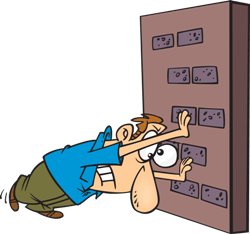
- He pushed on the wall.
- Did the wall move?
- No, the wall didn't move!
However, there are also many irregular verbs in the simple past. Be sure to review them!
Past Progressive
We use the past progressive tense to talk about actions that were in progress at a moment in the past.For example:

- Wanda was working on her computer for three hours yesterday.
- Was she listening to music?
- No, she wasn't listening to any music.
It's very common to use the past progressive to describe a long action and the simple past to describe a short action that interrupts it.
For example:
- Wanda was working on her computer when the phone rang.
Past perfect
We use the past perfect tense to talk about actions that were completed before a moment or another action in the past. It is especially important if the first action had an effect on the later moment or the later action in the past.For example:

- Jerry had bought the ring a week before he proposed to Kathy.
- Had Kathy realized before he went down on one knee?
- No, she hadn't guessed before it happened! What a surprise!
Past perfect progressive
We use the past perfect progressive tense to talk about actions that went on for a period of time until a moment or another action in the past. This is not a very common tense.For example:

- Linda had been running for five minutes before the dog stopped chasing her.
- Had she been screaming that whole time?
- No, she hadn't been screaming.
Okay, now let's get some practice with the past tenses!
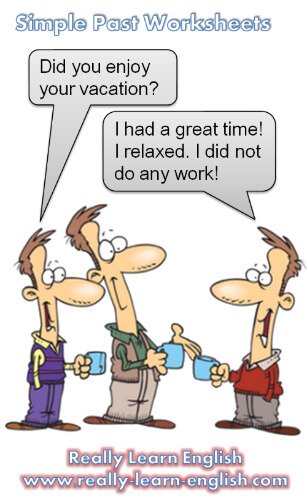
Exercise A: Simple past or past progressive?
Read the story below and then choose the correct sentence for each question. Be sure to see whether the action was in progress or completed.
Ms. Jones and her students had a busy day! From 8:00am to 9:00am, they studied history.
From 9:00am to 10:00am they had math class. At 10:00am they went outside to play, and they came back into class at 11:00am.
At 11:00am, they got their art supplies ready. Then they painted until 12:00pm, when it was lunch time.
They ate lunch from 12:00pm to 12:30pm. At 12:30pm, they sang a song.
Then, they studied science from 12:30pm to 1:00pm.
After that, they were all very tired, so they went to the park until the end of the school day!
1.
a.) at 9:00am, they were stopping studying history.
b.) At 9:00am, they stopped studying history.
2.
a.) At 9:30am, the students studied math.
b.) At 9:30am, the students were studying math.
3.
a.) Before their painting class at 11:00am, they were getting their art supplies ready.
b.) Before their painting class at 11:00am, they got their art supplies ready.
4.
a.) At 12:15pm, the students were eating lunch.
b.) At 12:15pm, the students are lunch.
5.
a.) After their science lesson, the students played in the park.
b.) After their science lesson, the students were playing in the park.
Exercise B: Interrupted actions
Use the verbs in parentheses () to complete the sentences below. Each sentence contains a long action that is in progress, and a short action that interrupts it.You should use the simple past or the past progressive.
1.

He __________ on the phone when I entered the room. (yell)
2.
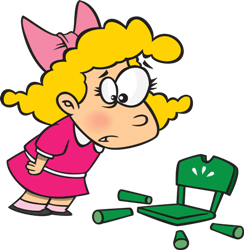
She was sitting on the chair when it __________. (break)
3.

He was writing some notes when the teacher __________ him a question. (ask)
4.
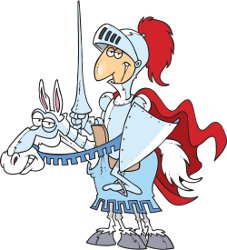
When the princess saw him, he __________ his horse. (ride)
5.

When we got home, he __________ to clean the house. (try)
Exercise C: Past perfect
Use the verbs in the past perfect from the table to complete the sentences.| had already broken |
| had hit |
| hadn't finished |
| had hugged |
| had sung |
1.
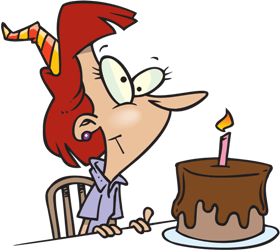
We __________ "Happy Birthday" before she blew out her candle.
2.
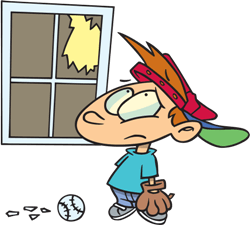
He __________ the window when I got home.
3.
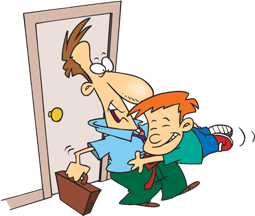
Before he could put down his briefcase, Jimmy __________ him!
4.

Before he could move, the ball __________ him in the head.
5.

They __________ eating dinner when I arrived.
Exercise D: Past perfect continuous
Use the sentences from the table to answer the questions below. The past perfect continuous explains an action that took place over time and has an effect on the past moment we see in the picture.| Because he had been working on the test for a whole hour! |
| Because she had been organizing it. |
| Because she had been working all day long. |
| Because she had been holding him for too long. |
| Because she had been teasing him. |
1.

Why is her closet so neat? ____________________________.
2.
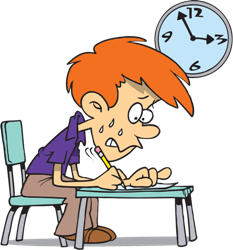
Why was he so stressed? ____________________________.
3.

Why was he so sad? ____________________________.
4.
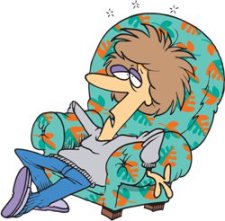
Why was she so tired? ____________________________.
5.

Why was the cat so upset? ____________________________.
Answer Key
Exercise A: Simple past
or past progressive?1.
b.) At 9:00am, they stopped studying history.
2.
b.) At 9:30am, the students were studying math.
3.
b.) Before their painting class at 11:00am, they got their art supplies ready.
4.
a.) At 12:15pm, the students were eating lunch.
5.
a.) After their science lesson, the students played in the park.
Exercise B: Interrupted actions
1. He was yelling on the phone when I entered the room.
2. She was sitting on the chair when it broke.
3. He was writing some notes when the teacher asked him a question.
4. When the princess saw him, he was riding his horse.
5. When we got home, he was trying to clean the house.
Exercise C: Past perfect
1. We had sung "Happy Birthday" before she blew out her candle.
2. He had already broken the window when I got home.
3. Before he could put down his briefcase, Jimmy had hugged him!
4. Before he could move, the ball had hit him in the head.
5. They hadn't finished eating dinner when I arrived.
Exercise D: Past perfect continuous
1. Why is her closet so neat? Because she had been organizing it.
2. Why was he so stressed? Because he had been working on the test for a whole hour!
3. Why was he so sad? Because she had been teasing him.
4. Why was she so tired? Because she had been working all day long.
5. Why was the cat so upset? Because she had been holding him for too long.
Get Updates, Special Offers, and English Resources
Download your FREE GIFT (the first two chapters of
English Short Stories Book and Workbook)
as soon as you join!

By submitting your email, you consent to receiving updates and newsletters from us and to the sharing of your personal data with third parties for the purposes of sending you communications. We will not spam you. You can unsubscribe at any time. For more information, please see our privacy policy.
Return
from Past Tenses Worksheets to English Grammar Exercises
Return to
Really Learn
English Home Page





